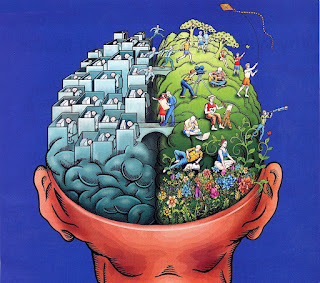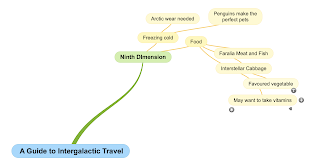When Ideas Crowd In: Hints and Tips for staying Creative by Wendy H. Jones
The brain is an amazing organ - it literally works twenty-four hours a day, whether we are asleep or awake, making sure our bodies continue to work to their optimum capacity. As writers we use our brains continually, taking in stimulus from all our senses and storing them as ideas we can use in books. Even when we are asleep we often dream of plots that can be used in a book. I don't know about you but I find ideas zinging into my brain almost every second of the day and bouncing around in there like an acrobatic troop on steroids. Yet, I am sure you will agree, these ideas don't stay there for long as they are usually booted out by the next brilliant idea that claims squatter's rights. This constant stimulation can be draining and exhausting but we creative types struggle to switch it off. So, what can we do to organise things better? Quite a bit it turns out.
1. We all know this one but write things down. I'm putting it here as it is possibly the number one way we can retain creative ideas. Also, once it is written down our brain is able to put it aside and forget about it. Whether you use posh notebooks, cheap notebooks, cheap pens, expensive pens, computers, phone, apps, scraps of paper, or post it notes - write it down. Although the latter two may not be the best way - I manage to lose scraps of paper with amazing regularity.
2. Write it down in a way that makes sense. Wakening up in the middle of the night and writing 'the donkey slept but that still didn't stop Joanna' or 'penguins make the perfect pets in the ninth dimension of the galaxy' might make perfect sense at 2am but not at 9am when you're trying to remember exactly what you were on about. Clarity helps.
3. However, if you are writing the above as part of a mind map outlining the plot of your book, you can bet your bottom dollar it will be crystal clear if it's part of a particularly tricky part of your book.
I'm not writing this book, it is merely something I threw together for this blog. I did it on a free programme on my computer called SimpleMind. I have a Mac computer, so I'm not sure if it's available on Android, but there will be an equivalent. I also draw Mind Maps on the whiteboard in my office but that cannot be transported, so not quite so good if I am on the move which I often seem to be.
4. Did you know that having a nap can improve your brain function and increase your memory capacity? Let me assure you it can. So, all those people taking a nap in the afternoon are doing themselves a favour. Some of the most famous world leaders took naps during the day. So, put down that pen or put your computer to sleep and have your own sleep. Or should I say nap. A ten minute nap can give you a 155 minute boost in your levels of alertness. If I need a nap I will set a timer for 15 minutes on my watch, phone or Alexa. This gives me time to drift off and get ten minutes in. The converse of this is that napping for too long can leave you feeling like a wrung out dishcloth when you do waken up.
5. This next one came as a shock to me. We are more creative when our brains are tired. Yes, you read that correctly. It is better for our brains to get the more analytical parts of the day out of the way while we are bright as they require more brain power. The creative thoughts come flooding in once we shove the analytical tasks to one side and feel dog tired. Who knew. This is why creative ideas often come bounding in through the metaphorical brain door, announcing their arrival with cymbals and trumpets, when we are in the bath or shower or enjoying a glass of wine at the end of the day. Or even, the scourge of writers everywhere, the minute we go to bed. That's when our brain invites the pipes and drums to join the cymbals and trumpets.
6. Another one you may know, but hands up all those who do it. I'll be honest and say I don't quite do as much as I should. Exercise helps to rewire the brain, increase cognitive power and boost memory. A lifetime of exercise keeps our brains sharp and we perform higher in all aspects of cognitive function. This is often a difficult one for writers as we spend a lot of time sitting down, so it's time for us to take a walk, go for a run, go swimming, or any other form of exercise. Find something you like and commit to doing it daily. I know I plan to do this moving forward.
So, I hope something in this resonates with you. As writers it is important we do everything we can to maintain our brain power and keep our creative juices flowing. I am sure there are things you can add to this, so please do so in the comments. I, for one, want to preserve my brain and creative thinking for as long as I possibly can. Now, if you'll excuse me, I'm off for a nap.
About the Author
Wendy H. Jones is an award-winning, international best-selling author who writes adult crime books, young adult mysteries, children's picture books and non-fiction books for writers. She is also a writing and marketing coach, runs the Writing Matters Online School and is the CEO of Authorpreneur Accelerator Academy, The president of the Scottish Association of Writers and hosts The Writing and Marketing Show podcast. She is currently writing a series of historical fiction novels based around the life of a 19th Century Surgeon in the Royal Navy.
Website
Amazon Author Page
Website
Amazon Author Page



Comments